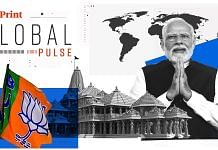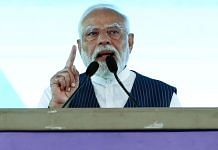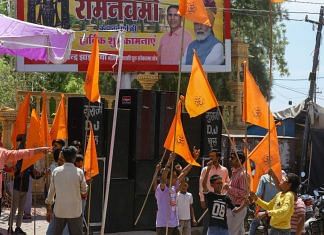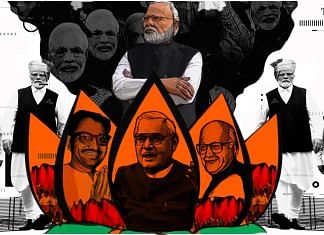Thank you dear subscribers, we are overwhelmed with your response.
Your Turn is a unique section from ThePrint featuring points of view from its subscribers. If you are a subscriber, have a point of view, please send it to us. If not, do subscribe here: https://theprint.in/
The Narendra Modi government seems to be working overtime to bring in legislations
towards breaking free from whatever is remnant of the erstwhile socialist India of the
days of Licence Raj. It is to the credit of the current government that it has been able
to put forth such politically brave reforms. On the other hand, it is also true that it has
fallen short on delivering on implementation of these policies almost without an
exception.
Most would agree with the fact that it is the government itself that is to be blamed
for the lacklustre follow-up of these ambitious announcements, be it privatisation of
public sector giants, the farm laws or the latest policy on monetisation of assets. It is
almost amusing that a government with such majority, and more importantly, with almost a cult like fan following among its considerable number of devoted followers,
is failing on its action plans. So, what is it that the government is doing wrong?
There is no doubt that the government is displaying an unprecedented will to take
unpopular decisions. But it won’t be wrong to say that taking such decisions is only
one part of the job. Modi’s team seems to have failed to some extent to fully
understand the beauty of the democratic system of India so far. In our society, it is
very easy to sway the public opinion against the long-term good of strategic decisions
using people’s short-term burdens. The deep-rooted religious and caste-based system
further complicates things, where some political entities exercise strong hold on their
supporter base. For these supporters, it is of little significance if a government policy
is good or bad, but what matters is whether their leader is for or against it. These
factors make it very easy for political entities, even being in minority, to effectively
take the disruptive route to hinder anything irrespective of their actual numbers in
the House. Social media has only helped these entities to enhance the effectiveness
of such measures.
Historically, there has been a practice wherein governments reached out to their
political opponents on key issues. With a little give and take, governments in the past
were able to achieve a broad consensus on contentious issues. This consensus was
both overt and covert, allowing all entities to honour their political obligations to
their support bases and at the same time allowing government policies to be
implemented smoothly. This was an era where political leaders commanded a grand
(and sometimes moral) stature, irrespective of which side of the threshold of majority
in the House they belonged. P.V. Narsimha Rao choosing Atal Bihari Vajpayee as the
Indian representative at Geneva in 1994 is one such incident wherein due respect was
accorded to a political opponent. Such atmosphere allowed parties to contest each
other vehemently and at the same time left adequate room for conciliation, if
required.
Since the arrival of Modi’s style of politics, the political spectrum has become bitter.
While calling each other names has become a norm, it is now a political necessity to
oppose anything and everything that the government in power proposes. Lack of any
credible opposition, both in terms of numbers and substance, is not helping the cause
either. As a nation, we have arrived at a stage where the opposition in the House has
been belittled and battered so much that it is almost considered a necessity for
political opponents to adopt disruptive means to be of any relevance.
The sheer power that the BJP-led NDA wields due to its strong majority in Parliament is
allowing it to pass legislations almost single-handedly. But interestingly, the same power has made it belittle the opposition so much that its political rivals are resorting to measures seen rarely before to make it as difficult as possible for it to implement those legislations.
Such is the beauty of our democratic system.
Any government needs to understand the fact that implementing a legislation or a policy is
much more important than bulldozing the same through the legislature. And that can only
be done when there are professional and mutually respectful minds at work, not arch
enemies at each other’s throat. One can only hope that someday, all parties would realise that all of them hold their offices for the national interest, that all of them are in the same team. Those in power must give due regard to those considered as ‘opponents’. There is no doubt that those in opposition really need to up their game considerably, but it would be good for India to witness the magnanimity of the government in taking the first step. Will it?
These pieces are being published as they have been received – they have not been edited/fact-checked by ThePrint.












COMMENTS